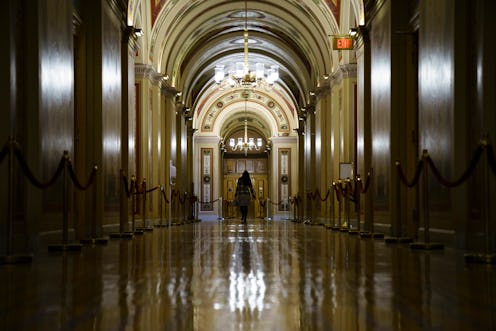Life
The UK Just Appointed A “Minister For Loneliness” & Its Function Is Super Important

The British Prime Minister, Theresa May, has made headlines worldwide by announcing that she's appointed a "minister for loneliness," in order to "confront" the challenge loneliness creates in society, and "for all of us to take action to address the loneliness endured by the elderly, by carers, by those who have lost loved ones — people who have no one to talk to or share their thoughts and experiences with," she explained to the New York Times. Tracey Crouch, the under secretary for sport and civil society, according to the Times, will be the first person to fill the position. Crouch will be tackling a serious, widespread issue — but there's more to loneliness than just feeling a bit disconnected.
The minister for loneliness'sposition came about because of a political project that crossed party lines in the U.K. — and carries a lot of weight because it was founded by MP Jo Cox, who was fatally shot by a right-wing terrorist in 2016. Before her death, Cox had set up a commission to investigate loneliness and its consequences for British society. Now the commission's findings have led to the creation of this position, to understand why British people are feeling lonely and help them not feel so lonely anymore. And it's in the interests of people worldwide to pay attention; investing in combatting loneliness is a way to make people healthier.
The health consequences of loneliness are well-documented. Studies have found that sensations of isolation and disconnection from social support networks raise your risk of heart problems, increase mental health difficulties, create sleep issues, heightens stress levels and inflammation, lowers the immune system and can impact gene expression over time. A lonelier population is sicker and dies earlier than one that has stronger communal ties. Faced with those statistics, an entire government department tasked with battling the problem seems like a good idea.
It's not yet clear exactly what the minister for loneliness will do, or how she'll combat the many ways in which loneliness manifests. Part of the problem, experts believe, is that modern life allows for more freedom than ever before, but also creates more opportunities for solitude. However, the problems behind loneliness are ancient: bereavement, growing up, massive life shifts, rifts with others, and mobility for work or family can be particularly isolating. A 2017 study found that millennials are particularly vulnerable to feeling lonely, in part because it's so much easier to perform basic tasks like banking and shopping without any human interaction.
But there are some who think that a loneliness minister for the U.K. is too little, too late. Part of the problem in the U.K., people say, is that May's government isn't exactly funding policies that help people feel less alone. In 2017, the Conservatives, May's party, cut funding for local councils, which in the U.K. provide things like support for elderly people at home, affordable childcare, community projects, and other programs that could help lonely people connect. Councils announced attempts to try to save £824m (over $1 billion U.S.) to prevent going into the red, cutting back on programs across the board.
And this is a trend under the Conservatives in general; since coming into power in 2010, nearly 50,000 council jobs have disappeared between 2011 and 2016, shrinking what they could do for the community. Brexit, which was proposed by the Conservative David Cameron in his time as prime minister, may also mean that people in the U.K. are more cut off from support networks across Europe, where previously they could travel and live freely across the EU. It's important not just to applaud the idea of a minister for loneliness, but also to consider what factors might be perpetuating loneliness — and political policies are definitely part of the problem.
Fixing loneliness is a community effort that involves many different levels: political policy, local government, and individual acts all have a role to play. If you know anybody who's isolated and seems to be suffering from loneliness, from an elderly relative to somebody who's just moved to a new community, do your bit: make a connection and invite them for coffee.